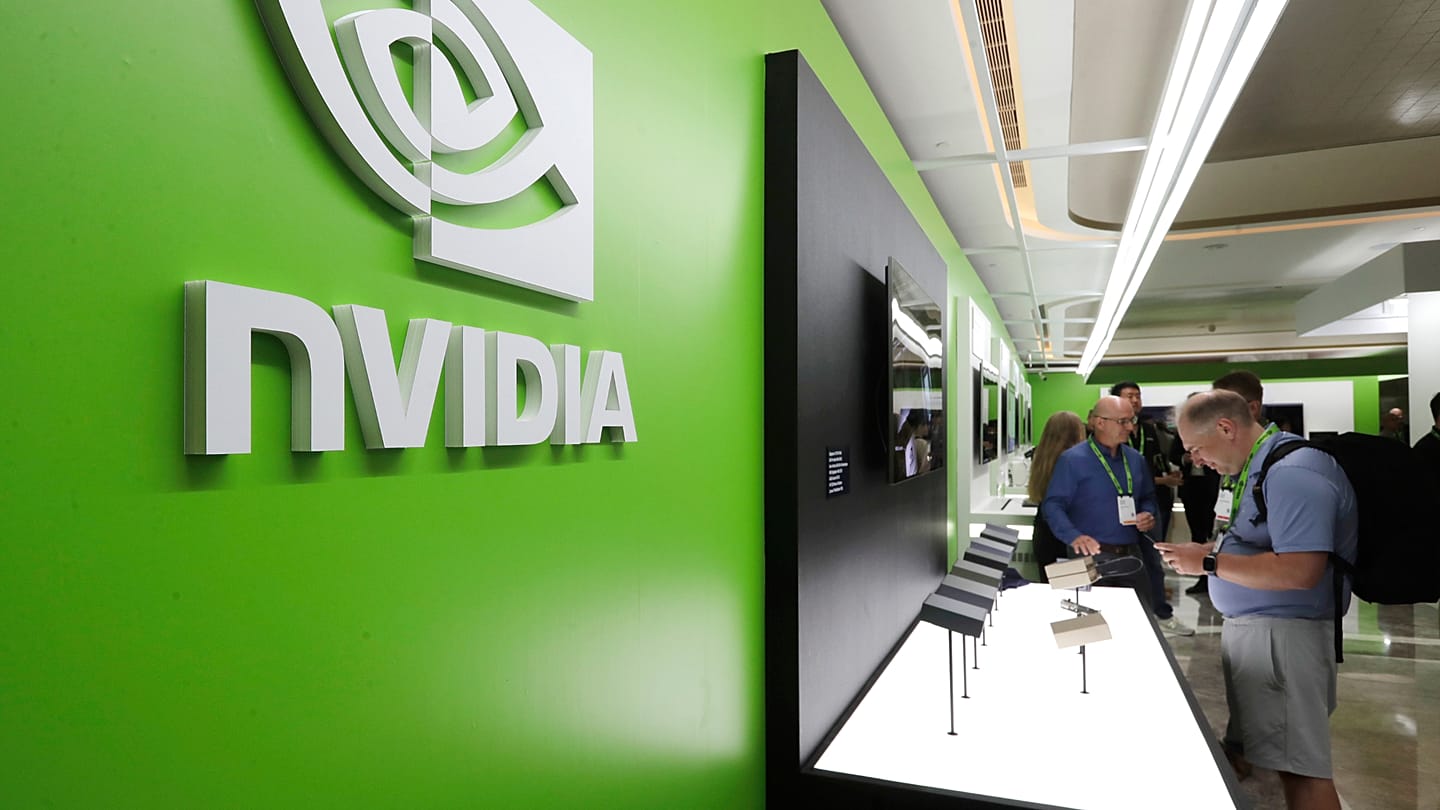
Nvidia has become the first $5 trillion company (€4.30tn), just three months after the Silicon Valley chipmaker was first to break through the $4tn barrier.
Hitting the new benchmark puts more emphasis on the upheaval being unleashed by an artificial intelligence craze that’s widely viewed as the biggest tectonic shift in technology since Apple co-founder Steve Jobs unveiled the first iPhone 18 years ago. Apple rode the iPhone’s success to become the first publicly traded company to be valued at $1tn, $2tn and eventually, $3tn.
But there are concerns of a possible AI bubble, with officials at the Bank of England earlier this month flagging the growing risk that tech stock prices pumped up by the AI boom could burst. The head of the International Monetary Fund has raised a similar alarm.
The ravenous appetite for Nvidia’s chips is the main reason that the company’s stock price has increased so rapidly since early 2023. On Wednesday the shares touched $207.86 (€178.66) in early morning US trading with 24.3 billion shares outstanding, putting its market cap at $5.05tn (€4.34tn).
In comparison, Nvidia’s value is greater than the GDP of India, Japan and the United Kingdom, according to the International Monetary Fund.
Positive signals from the chipmaker
On Tuesday, Nvidia CEO Jensen Huang disclosed $500 billion (€429.77bn) in chip orders.
On the same day, the company announced a partnership with Uber on robotaxis and a $1bn (€859.24mn) investment in Nokia, with the two planning to work together on 6G technology.
Investors are watching closely as Nvidia is teaming with the Department of Energy to build seven new AI supercomputers.
Last month Nvidia announced that it will invest $100bn (€85.92bn) in OpenAI as part of a partnership that will add at least 10 gigawatts of Nvidia AI data centres to ramp up the computing power for the owner of the artificial intelligence chatbot ChatGPT.
In August, Huang said that Nvidia was discussing a potential new computer chip designed for China with the Trump administration.
President Donald Trump said on Air Force One that he will speak with Chinese President Xi Jinping about Nvidia’s chips on Thursday.
Semiconductors have been a key point of contention between the US and China, although investors are now hoping for an easing of trade restrictions on chips.
Progress on such a proposal would come as a relief to Nvidia CEO Jensen Huang, who has long criticised US restrictions. Huang has notably argued that curbs are boosting China’s AI capabilities as the Chinese market is forced to become less reliant on US products.
It seems that such logic is already understood in Beijing, even as the US softens its stance. After Washington gave the green light to H20 chip exports, China’s regulator banned the country’s biggest tech companies from buying Nvidia’s artificial intelligence chips.
While it’s possible that Chinese restrictions on Nvidia chips could be a long-lasting policy, experts have suggested that the move may be a bargaining chip in trade negotiations with Washington.